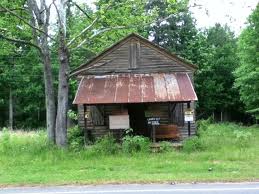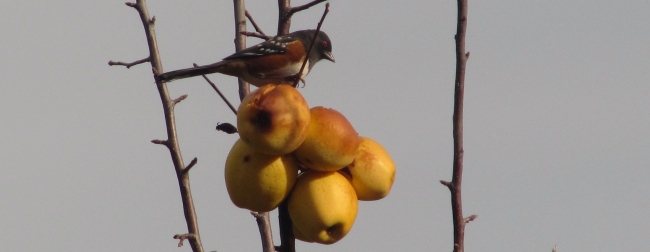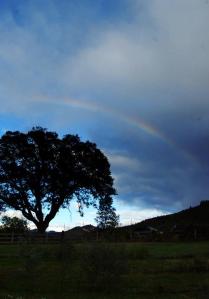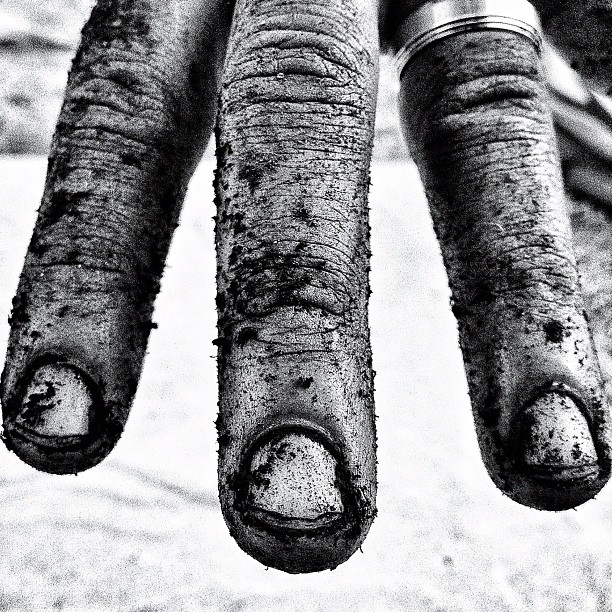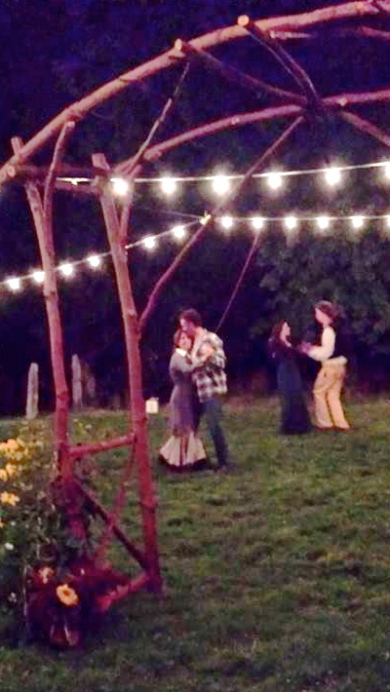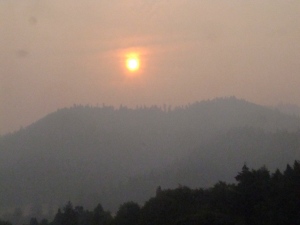by Meganzer O’Toole
“Every forest needs a bar,” says my buddy Elwood. “Or two,” he adds.
We are watching a local bluegrass band pick their tunes on a tiny stage beneath the trees.
“I couldn’t agree more,” I reply while taking a sip of beer.
How could he have known that his simple observation is also one of my current fantasies?
I spend a decent amount of time in the city, and have lived there at various points in my life. I am intrigued by how people spend their time in urban areas, and what they choose to do given so many options at any given moment. However, I am always ready to leave, and when I drive home to the country, I do not miss the fast pace of the urban life, all the devices, or the constant consumerism. But, I do miss the ability to easily drop in and chat with someone—either a friend or stranger. I miss going out for a beer in the evening and hearing the news of the day, sharing a laugh and a story with the bartender, or meeting a friend to have some one-on-one time. That is, I enjoy the “third places” of the city and would like to bring that element of urban life to the countryside.
The third place is a term that refers to a social setting that is separate from the two usual social environments of home (the first place) and work (the second place). In Ray Oldenburg’s book The Great Good Place, he argues that third places are important for community building, civil society, democracy, civic engagement, and establishing feelings of a sense of place. It follows then that these third places are fairly important for community life and could help foster broader, more creative interactions than one might get out of the standard chat in the checkout line at the country store.
Traditionally, one of the more common, if not the only, third places in a rural village was the Country Public House, which functioned as a social center. In the past, many rural pubs provided opportunities for country folk to meet and exchange the news, play music together, arrange mutual help, and convivially drink. It is said that these alehouses grew out of domestic dwellings in the British countryside. Once her brew was ready, the Anglo-Saxon Alewife would put a green bush up on a pole to let her neighbors know they could stop in for a beverage.
Throughout time, societies have always had informal meeting places. They have been the spots that have seeded cultural revolutions, invited important conversations among neighbors, and produced songs, stories, poems, and paintings that reflect the times. Now, it seems like we need to intentionally seek them out, even though they are no less vital to our current societal needs.
Or at least, they are vital to my needs. And I suspect I am not alone on this one.
In an urban center or a quaint British village, it is easier to seek these spots out, as it is possible to easily walk to one of these establishments. Even around here at the turn of the century you would have had more luck, as there were thousands of people in the Applegate and several ‘town centers’ to serve basic needs. In the Little Applegate alone, where there used to be at least 4 of these town centers, now the only watering hole around is 10 miles away. These days, things have spread out and you can’t find much of anything unless you get in your car.
To further complicate the issue, our first and second place is often the same place, since many of us are land-based and work at home, so we don’t even pass by this third place on our way to and fro. Perhaps we ought to take the lead from the old Alewife and find ways to create these spaces in our neighborhoods– home pub nights or a Speakeasy in the back of the barn, for example.
Oldenburg suggests that a true “third place”:
- Be free or inexpensive
- Offer food and drink
- Is proximate and accessible for many (walking distance is ideal)
- Involve regulars – those who habitually congregate there
- Be welcoming and comfortable
- Is a spot where you can find both new and old friends
Last week, while in Portland, I saddled up to the bar at one of my favorite neighborhood taverns. An older gentleman sitting next to me shyly asked if I would be willing to field a question.
“Sure,” I said, “That’s what I am here for.”
Oddly, he went on to ask me why I was there and what drew me to the bar on a Tuesday night. He then proceeded to give me all the reasons why he was there, many of which are outlined above. When given a chance to respond, I echoed many of his thoughts.
“I wanted to talk to the people, hear the news, and feel the energy,” I explained. “I don’t get to do this where I live.”
That led to more questions and I gave him a run down of my rural life, the work that I do, and my living situation. At the end of my long account, he smiled and said, “Thank you. That’s why I came out tonight. That’s exactly what I needed to hear.”
“No problem,” I said. “I’m happy to help.”
And that is the truth. This is why I’m here. I feel it down to my toes. My German heritage, my Wisconsin upbringing, my career as a community organizer, my particular social needs– all could coalesce into the perfect Alewife, or more accurately in my case, the Brew Maiden of the Little Applegate. I want to tell Joe that Frank needs to borrow his mower on Tuesday, and help Sally try to find a ride to Portland for the weekend. I want to listen to my neighbors work out a new tune, tell a tale, or sing a song over a batch of homebrew. I want to taste Laura’s strawberry mead and offer up this year’s hard cider to my neighbors while reminiscing about the past and speculating about the future—every Thursday from 5pm-9pm. I’ll even wear a dirndl on special occasions.
Now I just need to convince Elwood to come down and build me a bar.
